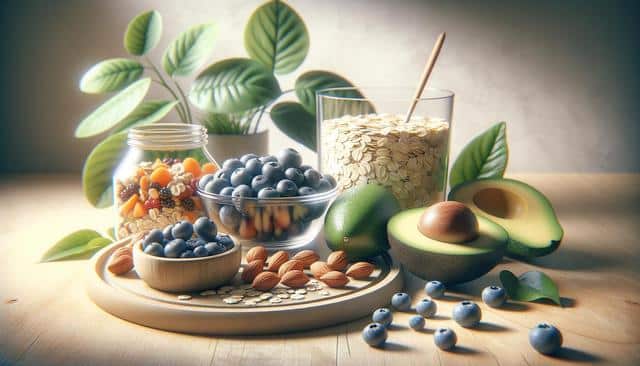
Nutritious and Delicious: Smart Snack Choices for Seniors
Why Snacking Wisely Matters for Seniors
As we age, our nutritional needs change, and maintaining a balanced diet becomes even more critical. Seniors often require fewer calories but more of certain nutrients such as calcium, vitamin D, fiber, and protein. Healthy snacking can help bridge the nutritional gaps, especially for those who may not eat large meals or have specific dietary restrictions. Choosing nutrient-dense snacks can support bone health, cognitive function, and energy levels throughout the day.
Snacks also offer an important opportunity to manage blood sugar levels and prevent fatigue. For seniors managing conditions such as diabetes or heart disease, the right snacks can contribute significantly to overall health. It’s not just about eating less, but about eating smarter. Incorporating snacks that are low in added sugars, rich in fiber, and packed with natural ingredients can make a substantial difference in quality of life and daily wellness.
Protein-Packed Bites for Muscle Maintenance
Protein is essential for preserving muscle mass, especially as seniors become more susceptible to muscle loss with age. Including protein-rich snacks in the diet supports strength, mobility, and recovery. Fortunately, there are many easy-to-prepare, protein-dense options that are also convenient and satisfying.
Consider these protein-rich snack ideas:
- Greek-style yogurt with a sprinkle of flaxseed or chopped nuts
- Hard-boiled eggs with a pinch of sea salt or herbs
- Cottage cheese with sliced peaches or tomatoes
- Nut butters on whole-grain crackers or apple slices
- Roasted chickpeas or edamame pods
These snacks not only offer high protein content but also deliver other essential nutrients like calcium, magnesium, and healthy fats. When selecting packaged snacks, it’s helpful to look for options with minimal added sugars and sodium to keep them heart-healthy and senior-friendly.
Fiber-Filled Choices for Digestive Health
Fiber is a vital component of a senior’s diet, aiding in digestion and helping to prevent issues like constipation, which can become more common with age. Additionally, fiber contributes to heart health and helps maintain stable blood sugar levels. High-fiber snacks are a smart way to supplement meals and improve overall gut health.
Some excellent fiber-rich snack ideas include:
- Fresh fruits such as pears, apples (with skin), and berries
- Air-popped popcorn with a light dusting of herbs or spices
- Oatmeal muffins made with whole-grain flour and dried fruits
- Whole-grain toast with avocado spread
- Vegetable sticks with hummus or bean dip
Incorporating these options helps ensure seniors meet their daily fiber needs in a delicious and easy-to-digest way. Choosing whole foods over processed ones can also reduce the intake of additives and improve nutrient absorption.
Heart-Healthy Snacks for Cardiovascular Support
Cardiovascular health is a top concern for older adults. The right snacks can help manage cholesterol levels, reduce inflammation, and maintain healthy blood pressure. Snacks that are rich in omega-3 fatty acids, antioxidants, and potassium are particularly beneficial for heart health. Luckily, many of these foods are also flavorful and easy to enjoy between meals.
Heart-friendly snack ideas include:
- Unsalted nuts like almonds or walnuts
- Sliced avocado on whole-grain toast
- Frozen berries blended into a smoothie with unsweetened almond milk
- Dark chocolate (in moderation) paired with mixed berries
- Low-sodium vegetable soup in a cup
These snacks can be incorporated into daily routines without much preparation. When choosing packaged products, it’s wise to read labels carefully and avoid those high in saturated fats, trans fats, or sodium. Maintaining a heart-conscious snacking habit supports long-term wellness and energy levels.
Hydration and Snack Pairings for Overall Well-Being
Dehydration is a common concern among older adults, often due to a reduced sense of thirst. Pairing snacks with hydrating options can enhance both nutrition and fluid intake, helping seniors stay energized and alert. Many fruits and vegetables contain high water content, making them ideal snack choices that support hydration.
Some hydrating snack pairings include:
- Cucumber slices with low-fat cottage cheese
- Watermelon cubes with a handful of sunflower seeds
- Oranges or grapefruit segments alongside a small portion of cheese
- Celery sticks with peanut butter
- Cherry tomatoes with a drizzle of olive oil and fresh basil
In addition to water-rich foods, drinking herbal teas or infused water with snacks can help increase fluid intake without relying solely on plain water. Combining hydration with nutrient-dense foods supports better digestion, skin health, and mental clarity.
Conclusion: Making Smart Snack Choices for Lifelong Vitality
Choosing the right snacks can have a meaningful impact on a senior’s overall health and well-being. By focusing on nutrient-rich, easily digestible, and hydrating options, seniors can enhance their energy, maintain muscle and heart health, and support digestive function. Whether it’s a protein-packed yogurt bowl or a fiber-rich piece of fruit, every snack is an opportunity to nourish the body and mind.
With a little planning and attention to nutritional needs, snacking can be both enjoyable and beneficial. Seniors, caregivers, and family members can work together to ensure that snack choices are tailored to individual health goals, preferences, and dietary requirements. Thoughtful snacking is a simple yet powerful step toward maintaining independence, vitality, and a higher quality of life.


